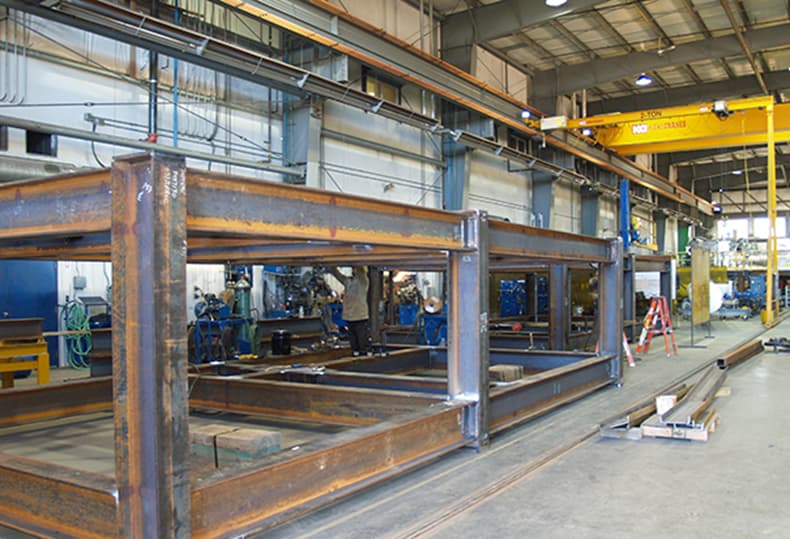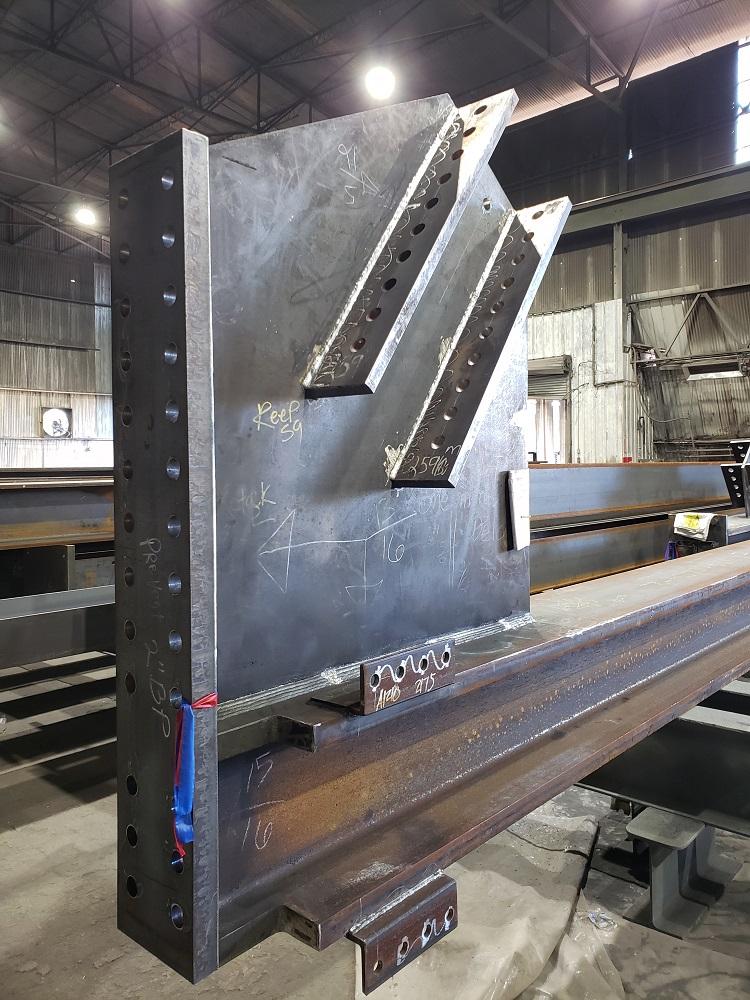Advanced Steel Fabrication Melbourne: Building the Future Today
Advanced Steel Fabrication Melbourne: Building the Future Today
Blog Article
The Ultimate Manual on Custom-made Steel Manufacture Solutions for Structural Projects
In the world of architectural tasks, the relevance of custom-made steel fabrication remedies can not be overemphasized. From the fundamental understanding of steel fabrication basics to the detailed process of choosing the most ideal materials, every action in this trip plays an essential duty in the utmost success of a job. As we browse via the intricacies of design factors to consider, manufacture processes, and high quality control procedures, a detailed manual acts as an assisting light for specialists looking for excellence in steel fabrication remedies. Stay tuned to reveal the understandings that can revolutionize the way structural jobs are approached and carried out.
Recognizing Customized Steel Fabrication Fundamentals
Exploring the basics of custom-made steel construction offers insight into the intricate process of changing raw steel into customized structural components. Personalized steel construction is a specialized manufacturing technique that entails cutting, shaping, and constructing steel materials to create unique frameworks according to certain project demands. Comprehending the basics of custom steel manufacture is critical for making certain the successful implementation of structural jobs.
The procedure typically begins with the analysis of project requirements and layout requirements. This first phase includes comprehensive planning and collaboration in between designers, designers, and fabricators to establish the most ideal method for fabricating the steel components. Accuracy is essential throughout the construction process, as even small inconsistencies can influence the structural integrity of the last product.
Different methods, such as cutting, welding, and shaping, are employed to transform raw steel right into the desired architectural aspects. Competent fabricators make use of innovative machinery and tools to make certain precision and consistency throughout the manufacture process. Quality control procedures are applied to verify the honesty of the produced components before they are constructed on-site, making certain compliance with market requirements and job specifications.
Picking the Right Steel Products

Primarily, the sort of structural project and its details demands play a crucial role in figuring out one of the most appropriate steel products. Elements such as the load-bearing capability, ecological problems, and desired life-span of the structure will determine the quality and kind of steel that should be utilized.
Additionally, the physical residential or commercial properties of the steel, including stamina, weldability, and ductility, need to line up with the task's demands to assure optimum efficiency and durability (Alpha reo). Additionally, considerations such as rust resistance, cost-effectiveness, and schedule of the steel materials must likewise be taken right into account during the choice procedure
Layout Factors To Consider for Structural Tasks
Structural jobs demand precise attention to develop factors to consider to ensure both performance and security are prioritized throughout the construction process. When it involves developing structural projects, several vital variables should be taken right into account to assure the success of the endeavor. Firstly, the structural honesty of the building have to be a top priority. This involves assessing lots, stress and anxieties, and ecological aspects to determine the most ideal design that can stand up to different problems gradually. Additionally, factors to consider for the performance of the structure play an important role in the design process. Understanding the function of the building and just how it will be made use of assists in creating a style that makes best use of performance and use. Including elements that enhance the aesthetics of the framework can further elevate the total style. Balancing aesthetic appeal, capability, and safety and security is crucial in producing effective structural projects that fulfill both useful and aesthetic needs. By thoroughly taking into consideration these facets throughout the layout stage, designers and engineers can make sure the structural project's success from perception to completion.
Enhancing Manufacture Processes for Effectiveness

Moreover, executing lean manufacturing principles can significantly improve performance in steel manufacture. By reducing waste, maximizing process, and improving interaction between various teams associated with the fabrication process, tasks can be completed extra swiftly and with better criteria.
In addition, establishing an efficient manufacturing timetable and operations can assist in focusing on jobs, assigning resources successfully, and conference project target dates promptly. By having a clear strategy in location and on a regular basis monitoring development, any kind of possible bottlenecks or hold-ups can be identified and dealt with immediately, making certain effective and smooth manufacture procedures for structural projects.
Quality Control and Job Monitoring in Steel Fabrication
To guarantee the successful execution of steel manufacture tasks, careful quality assurance actions and reliable project monitoring practices are important elements in preserving precision and meeting customer assumptions. Quality assurance in steel construction includes strenuous inspections click here for more at numerous stages of the manufacture process to validate conformity with project specs and industry criteria. This consists of special info material testing, dimensional checks, and weld inspections to make certain structural honesty and security.
Job administration plays a vital duty in coordinating the different aspects of steel manufacture jobs, such as organizing, resource allocation, and communication among team members. A distinct project strategy with clear purposes, turning points, and timelines helps to keep track of progress and attend to any type of possible concerns proactively. Efficient interaction in between all stakeholders, consisting of customers, contractors, designers, and makers, is important for making sure that the job progresses smoothly and meets the desired quality criteria.
Verdict
In verdict, custom-made steel construction plays a vital role in structural projects by giving tailored options using the appropriate materials and design factors to consider. Effectiveness in fabrication processes, quality control, and efficient task monitoring are necessary for successful outcomes. By comprehending the fundamentals of custom steel fabrication and applying streamlined processes, job groups can supply resilient and top notch frameworks that meet the particular demands of their customers.
Custom steel manufacture is a customized production strategy that involves cutting, shaping, and constructing steel products to produce special frameworks according to particular project requirements.To make sure the successful implementation of steel manufacture projects, thorough top quality control steps and effective project administration practices are vital parts in preserving accuracy and conference client expectations. Quality control in steel fabrication entails strenuous examinations at different stages of the fabrication process to validate conformity with job requirements and market standards (steel fixing).Job management plays an important function in coordinating the numerous elements of steel fabrication projects, such as scheduling, source appropriation, and communication amongst team members.In final thought, custom-made steel manufacture plays a vital duty in structural projects by supplying customized options using the right products and style considerations
Report this page